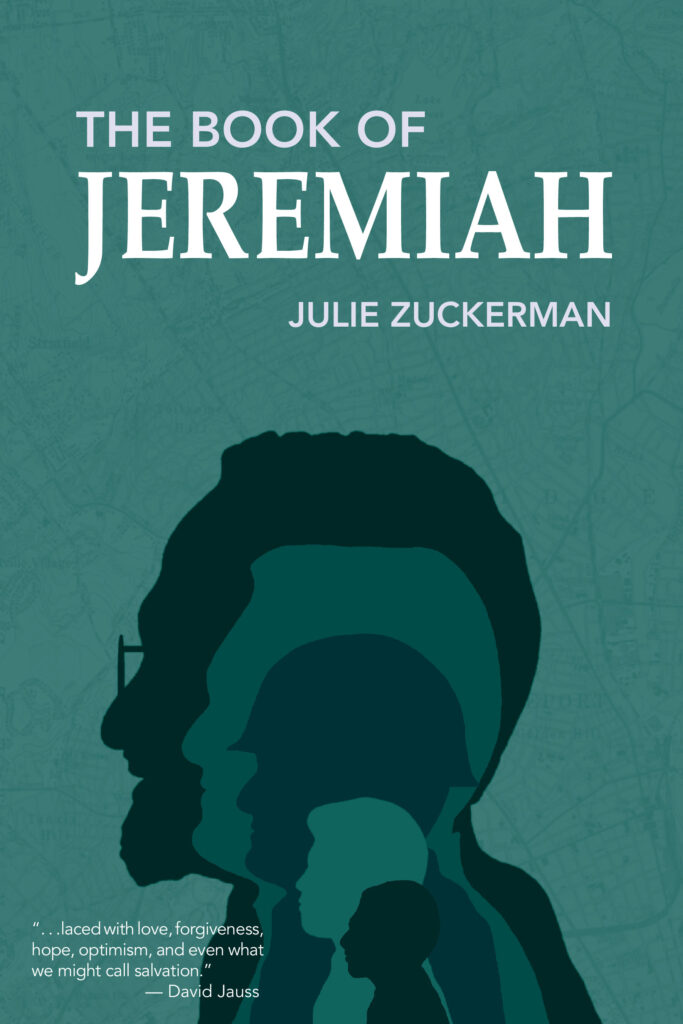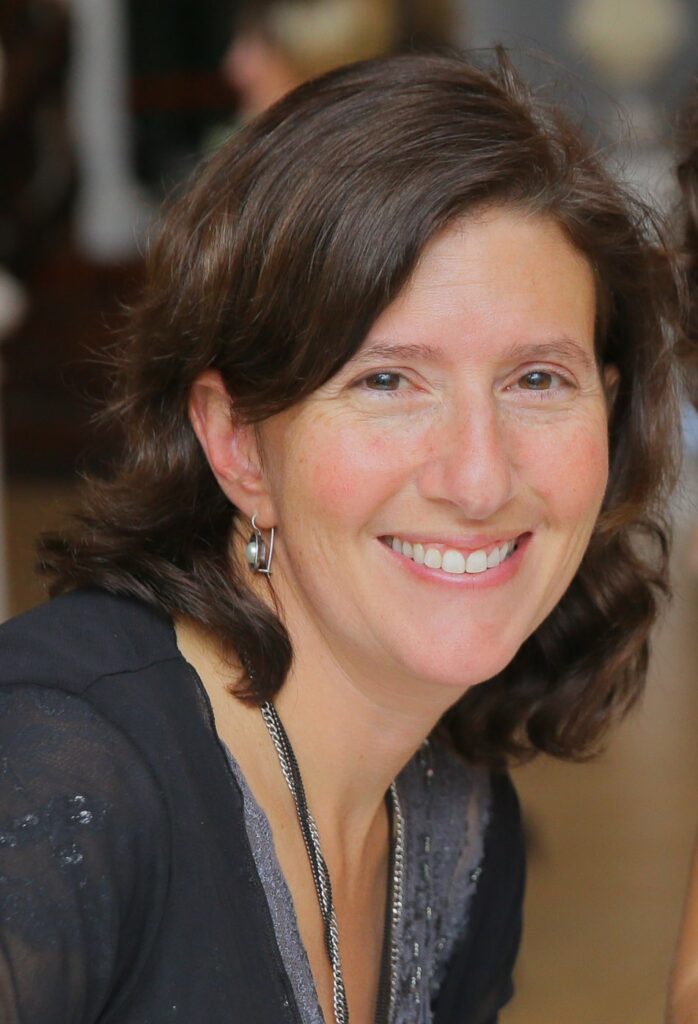Editor’s Note: This exchange is part of a series of brief interviews with emerging writers of recent or forthcoming books. If you enjoyed it, please visit other interviews in the I’ve Got Questions feature.
- What’s the title of your book? Fiction? Nonfiction? Poetry? Who is the publisher and what’s the publication date?
The Book of Jeremiah, a novel-in-stories, came out in May 2019 from Press 53.
- In a couple of sentences, what’s the book about?
The Book of Jeremiah tells the story of awkward but endearing Jeremiah Gerstler—the son of Jewish immigrants, brilliant political science professor, husband, father. Jeremiah has yearned for respect and acceptance his entire life, and no matter his success, he strives for more. There is something familiar about Jeremiah, as if he is someone you know – perhaps a cousin, uncle, or friend. Spanning eight decades and interwoven with the Jewish experience of the 20th century, the tale contains considerable loss, trouble, and suffering, but its thirteen stories are also laced with love, forgiveness, hope, optimism, and even what we might call salvation.
- What’s the book’s genre (for fiction and nonfiction) or primary style (for poetry)?
The book is literary fiction and could be considered either a story collection or a novel-in-stories. One thing that most readers have seemed to enjoy is that the stories aren’t in chronological order. The first story takes place when Jeremiah is 11, the next one jumps forward to when he’s 80, the third when he’s in his 20s, and so on.
The first story I wrote in the collection is “MixMaster,” which is the last story chronologically (and in the book). Jeremiah is 82 in MixMaster, and when I finished writing that story, I was enamored with his character. I wanted to unravel his life to find out how he became the man he is at 82. In some sense the reader’s experience mirrors my own, in that Jeremiah was a puzzle to put together. With each story, the reader gains a clearer view of the picture.
- What’s the nicest thing anyone has said about the book so far?
I’ve been blessed with many favorable reviews, and it’s hard to pick just one! I think my favorite is from Marrie K. Stone, who hosts the Writers on Writing podcast:
“Julie Zuckerman accomplishes what every author attempts but can’t always achieve—creating a fully rich, realized, complex, often aggravating, and always sympathetic, cast of characters who allow the reader to feel the full range of human emotion without relying on a lot of plot twists, thrills, or other artificial devices. In the spirit of Elizabeth Strout’s Olive Kittridge books, Zuckerman brings Jeremiah and his family to full fruition through 13 independent stories. She also tells the tale of the 20th century, in all its historical complexities and scandals. Every character had the capacity to surprise, while never feeling manipulative or inauthentic. It’s a literary achievement and a collection difficult to put down once begun.”
- What book or books is yours comparable to or a cross between? [Is your book like Moby Dick or maybe it’s more like Frankenstein meets Peter Pan?]
I LOVE when people bring up Elizabeth Strout’s Olive Kitteridge, as Marrie did in her review (and as you did in yours, Cliff)! Olive Kitteridge was a model for me when I set out to write Jeremiah, as I hope readers appreciate getting to know Jeremiah layer-by-layer, as I did with Olive.One of the highlights of my literary life was meeting Elizabeth Strout during her book tour for Olive, Again! I told her how much Olive meant to me and gave her a copy of The Book of Jeremiah.
- Why this book? Why now?
There’s a timelessness and universality to the questions the book tries to address. Another review, this one in the Asheville Citizen Times, expressed it this way: “What makes an ordinary life an extraordinary one? Is it the lives we touch? The things we accomplish? The help we extend to others? This is the question so many of us desperately want a simple answer to, a “how to” guide that will ensure our lives matter… ‘The Book of Jeremiah’ beautifully explores such questions through a series of stories that surround the life of kind, albeit awkward, Jeremiah Gerstler.” I love that, because it means that Jeremiah will be relevant to readers of all kinds, for many years to come.
- Other than writing this book, what’s the best job you’ve ever had?
My entire career has been in high tech at companies of all sizes. My favorite job was for a small startup, where I was the VP of Marketing. Our technology and apps were intended for EMTs, firefighters, campus security and other first responders, and could make the difference in life-saving situations. There were only 15 people or so in the company, we were all highly motivated and passionate about our work. I recently started a new job, this time at an educational technology company, and it feels a lot like that. I’m working long hours, but when you’re motivated by the company’s mission, it makes a world of difference.
My favorite non-paying job – and this goes waaaay back to my college days – was serving as the editor-in-chief of the Columbia Daily Spectator. We’d pull all-nighters five nights a week to write, edit and get the paper out. An amazing learning experience, often intense, but loads of fun. I’m still in touch with my Spectator friends, one of whom is Robert Kolker, whose latest book, Hidden Valley Road, was a New York Times Top Ten Book of 2020.
- What do you want readers to take away from the book?
What’s been most gratifying for me as a writer is to hear from readers who say they can see themselves or their family members in my characters. In one word: relatable. There’s often so much strife and tension within families. What I’ve tried to do with Jeremiah is to show that perhaps we should try to be more forgiving, even with – or especially with – difficult family members. Though Jeremiah and his family may behave badly at times, there’s an undercurrent of acceptance and forgiveness between them. In short, love wins.
- What food and/or music do you associate with the book?
Molly, Jeremiah’s wife, is a piano teacher and later in life takes up the electric guitar. She’d always been more of a Carole King/James Taylor fan, so Jeremiah and her kids are amused by her new hobby. I don’t remember if a reference to Carole King made it into the final version of the story (Birthday Bash), but I listened to “Live at the Troubadour” (King/Taylor’s joint album) on repeat when I wrote that story.
Molly is a big baker, and Jeremiah tries his hand at baking in the final story, so there are a lot of brownies, babka, and cookies in the book, as well as to traditional Jewish foods like kneidelach (matzah balls), brisket, etc. In fact, I have a recipe section on my website, and I include a recipe each month in my newsletter. And before Claire Foxx of Press 53 came up with the brilliant idea of using silhouettes for the book cover, Kevin Morgan Watson (the publisher of Press 53) and I bandied around the idea of having a brownie on the cover!
- What book(s) are you reading currently?
I’m reading Elizabeth Gilbert’s City of Girls and listening to George Saunders’ Lincoln in the Bardo. The audio version has 166 different narrators – it’s wild! And once I figured out what was going on, I’ve been enjoying it.
My TBR pile includes Rachel Beanland’s Florence Adler Swims Forever; Douglas Stuart’s Shuggie Bain; Jane Bernstein’s The Face Tells the Secret; Sari Rosenblatt’s Father Guards the Sheep (Stories); Jenny Offill’s Weather; Christine Sneed’s The Virginity of Famous Men: Stories; Alexander Chee’s How to Write an Autobiographical Novel: Essays; and my friend Avner Landes’ debut (coming out in March) Meiselman: The Lean Years.
Learn more about Julie at her website.
Subscribe to her monthly newsletter.


